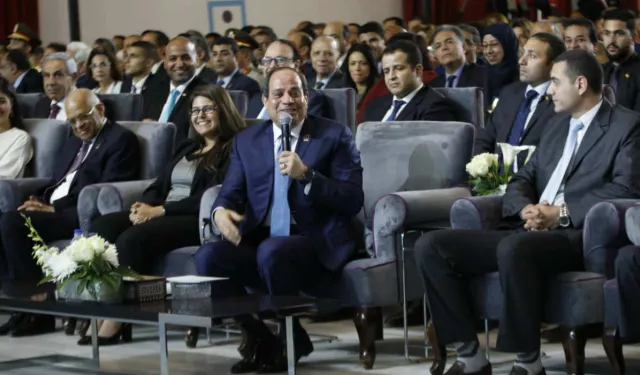President Abdel Fattah El-Sisi on Monday called on the National Elections Authority to intensively investigate incidents reported across several constituencies during last week’s first round of parliamentary voting, urging the body to cancel the entire stage if it cannot guarantee that “the true will of voters” was reached.
His remarks came less than 24 hours before results were expected to be announced, adding strain to an already contentious electoral cycle.
El-Sisi confirmed he had been informed about “events that occurred in some constituencies,” on Facebook, where individual-seat candidates were competing.
The president stressed that the NEA alone holds the mandate to review and rule on these cases, describing it as an independent authority under its founding law. He framed the matter as a test of institutional credibility amid rising allegations of interference.
“I ask the esteemed authority to conduct a full and precise review of these incidents and the appeals submitted, and to take decisions that please God Almighty and honestly reveal the true will of voters,” El-Sisi wrote.
The president also urged the NEA to bolster transparency by ensuring each candidate’s representative receives a copy of the vote count from their sub-committee, “so that members of parliament genuinely represent the people of Egypt.”
El-Sisi continued by urging the authority not to hesitate in “taking the correct decision when it is impossible to determine the true will of voters—whether by completely cancelling this phase of elections or by cancelling it partially in one or more constituencies, with those races held later.”
He also instructed the authority to publicly disclose measures taken regarding violations in campaign advertising, saying this was necessary to ensure “effective oversight” and prevent abuses from recurring in upcoming rounds. The direction came as reports of unregulated campaigning continued to surface.
The first phase of voting began in Imbaba with the withdrawal of former MP Nashwa El-Deeb just one hour after polls opened. She charged that the process lacked integrity and transparency, claiming seats had been predetermined. Her withdrawal set the tone for a round marked by distrust and dispute.
The phase ended with an urgent plea from Ahmad Fathi Abdel Karim, the Reform and Renaissance Party candidate in Montaza, Alexandria. Abdel Karim said he discovered several ballot boxes opened and emptied of voting papers at 8 pm, suggesting possible tampering. His account added fuel to growing accusations of systematic interference.
Across the two-day voting period in 14 governorates, the Egyptian Social Democratic Party’s central operations room documented numerous violations, including the use of campaign materials inside or near polling stations and vote-buying by supporters of candidates aligned with pro-government parties.
The ESDP said these breaches compromised fair competition and equal opportunity. Its findings underscored a pattern of abuses rather than isolated incidents.
During Al Manassa’s tour of several Giza polling stations, reporters observed continued bussing of voters to centers in Boulaq Al-Dakrour, as well as manufactured queues outside sub-committees in Dokki and Mohandessin.
Several young people told Al Manassa that they work in shops and hotels near one station and had been forced to queue from 7 am, unable to leave because a security officer managing the lines had collected their national ID cards. Al Manassa field reporters also witnessed one young man pleading with an officer to return his ID so he could get to work by 5 pm.
Al Manassa reporters further observed voters visiting the campaign headquarters of independent candidates Gergis Lawandi and El-Sayed Zaghloul to receive payment in exchange for casting ballots for them. The scenes offered direct evidence of transactional voting in the heart of the race.
The NEA is expected to announce first-round results on Tuesday. Run-off voting for Egyptians abroad will be held on Dec. 1–2, and inside Egypt on Dec. 3–4.
The second phase begins for Egyptian voters abroad on Nov. 21–22 and inside Egypt on Nov. 24–25 in the governorates of Cairo, Qalyubiya, Daqahliya, Monufiya, Gharbiya, Kafr El-Sheikh, Sharqiya, Damietta, Port Said, Ismailia, Suez, North Sinai and South Sinai. Run-offs will take place abroad on Dec. 15–16 and inside the country on Dec. 17–18.
Under Egyptian law, the House of Representatives consists of 568 elected members—284 by individual seats and 284 by party lists. The president may appoint up to 5% (28 members), bringing the total to 596. Final results are expected late December.
